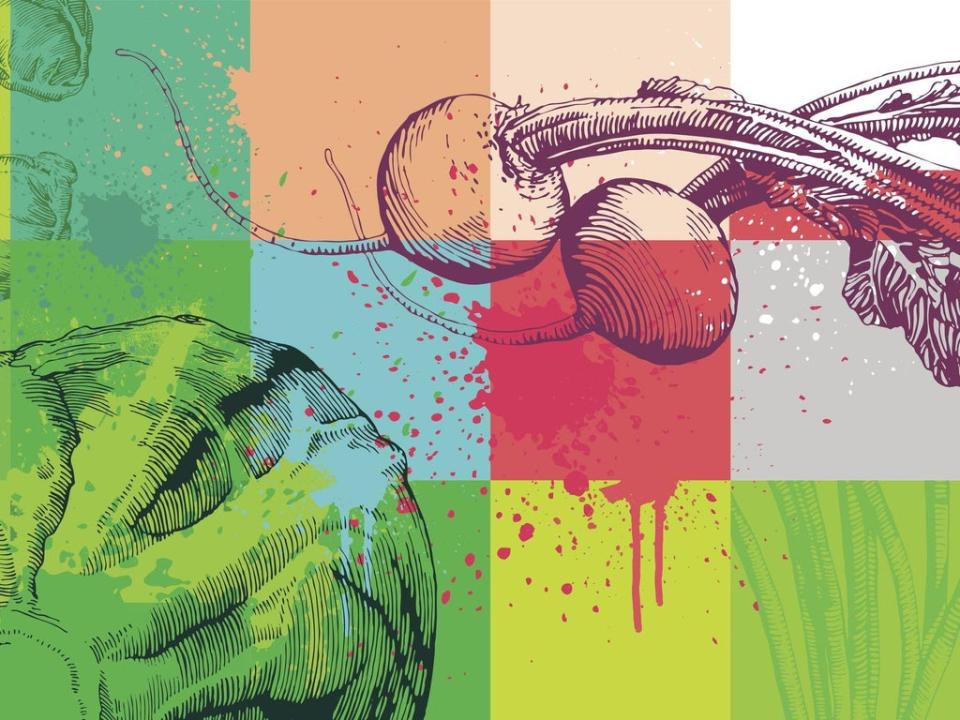World Hunger Day: What food banks really need you to donate right now

As the UK lockdown continues, food banks across the country are more desperate than ever for donations.
An increase in need has swiftly developed alongside a drop in donations.
“Food donations went down dramatically at first as people were stockpiling for themselves,” a spokesperson from the Independent Food Aid Network (IFAN), which works with more than 250 food banks all over the UK, told The Independent.
“Some of the supermarkets actually removed the boxes for people to put donations in as well.
“In addition, tinned foods – which are what many independent food banks have to rely on as they do not have the facilities to keep food cold or frozen – were initially hard to get hold of because supermarkets started restricting how much people could buy.”
They added that most food banks in the organisation’s network are “very worried” about being able to access adequate food, especially as demand has risen by 300 per cent in some areas.
IFAN called on the government to act “urgently” to reduce the number of people needing to access food banks by increasing benefit payments and enabling local authorities to pay crisis grants.
“The situation is spiralling out of control,” said the spokesperson.
The Independent has launched its own appeal to help those going hungry because of the coronavirus crisis. Help The Hungry aims to highlight how you can help in your area, with money, food donations or volunteering. The campaign has been backed by politicians including Sadiq Khan, the mayor of London, and Jess Phillips, the Labour MP who recently ran for party leader.
Although supermarket stocks have now replenished somewhat and some lockdown restrictions are starting to be eased, food banks are still in desperate need of your help and donations. On World Hunger Day, The Independent asks: how can we be most useful in our own communities?
What should I donate?
According to The Trussell Trust, which supports a network of more than 1,200 food banks – around two thirds of all the food banks in the UK – different food banks are short of different items. The charity has partnered with Give Food to compile a list of which essentials are needed where, accessible via a handy search tool on the website.
“We’re encouraging people to pop in their postcode to bring up the details of their local food bank, their most needed items as well as a list of their drop-off points,” a spokesperson tells The Independent.
The Camden food bank, for example, needs gluten-free pasta and non-caffeinated teas as well as the more standard tinned items.
However, there are some items that are welcome across the board, regardless of region:
UHT Milk
Fish
Meat
Vegetarian alternatives
Tinned Fruit
Tinned vegetables
Spaghetti in sauce
Long-life juice
Tomato/pasta sauce
Soup (can/packet)
Tea/coffee
Beans
Pasta/rice/noodles
Cereal
Rice pudding/custard
Biscuits
IFAN says its members are most in need of similar items, with the list including tinned vegetables, tinned meat and fish, pasta and pasta sauces, rice, cereal, UHT milk, biscuits and tinned soup.
However, it adds: “Most food banks need more of everything at the moment.”
Should I only donate food?
While food banks are always in need of food, they often need more non-food items too – the essentials that people donating can easily overlook.
“We’re still asking the public to donate non-food items such as toiletries and hygiene products as food banks are always in need of these along with little extras,” says The Trussell Trust.
Toilet rolls, toiletries (including razors), cleaning products and period products are “always useful”, according to IFAN. “These essentials are often missing at food banks at the moment,” says a spokesperson.
How can I donate safely during the pandemic?
While you may have visions of donning full PPE to shop for donations, much simpler measures are adequate, according to IFAN. It recommends practising good hand hygiene and warns against donating if you or anyone in your household has symptoms of Covid-19.
What measures are food banks taking to keep people safe?
New guidance has been given to food banks in terms of how food is being distributed, with many food aid providers who used to operate from a venue now dropping food parcels on people’s doorsteps instead.
Some food banks are still operating from venues but will hand pre-made up food parcels to people at the doorway, maintaining a safe distance, according to IFAN.
The Trussell Trust has provided all food banks in its network with a letter for workers explaining their role so it’s clear why they’re leaving the house. Volunteers who are classed as at-risk because of their age or due to a health condition have been told they must stay at home.
The Trust has taken other measures too, including: ensuring hand-washing facilities are available in all food bank centres and that everyone is washing their hands regularly; giving out pre-packed food bank parcels where necessary instead of inviting people into a centre; ensuring that whenever people are waiting they can do so 2m apart from others, and running a reduced number of food bank sessions per week.
Coronavirus: London on lockdown











You can find out where your local food bank is via The Trussell Trust’s website here.

